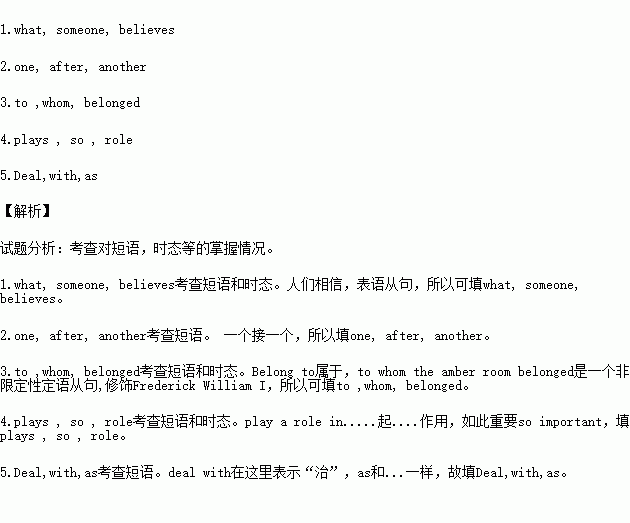题目内容
完成句子(根据汉语提示完成下面句子,每空一词)
1.看法就是人们相信是真实的但是未经证实的东西。
An opinion is ____________ _______________ ________________ is true but has not been proved.
2.希波墨涅斯在比赛期间把金苹果一个接一个地扔出去。
Hippomenes threw the golden apples __________ _____________ __________during the race.
3.然而,下一位普鲁士国王,腓特烈﹒威廉一世,这个琥珀屋的主人却决定不要它了。
However, the next king of Prussia, Frederick William I, __________ ___________ the amber room ____________, decided not to keep it.
4.你知道为什么英语在国际事务中起如此重要的作用吗?
Do you know why English __________ ____________ important a ___________ in the international business?
5.以其人之道还治其人之身。
__________ ___________ a man _________ he deals with you.
练习册系列答案
 名校课堂系列答案
名校课堂系列答案
相关题目

